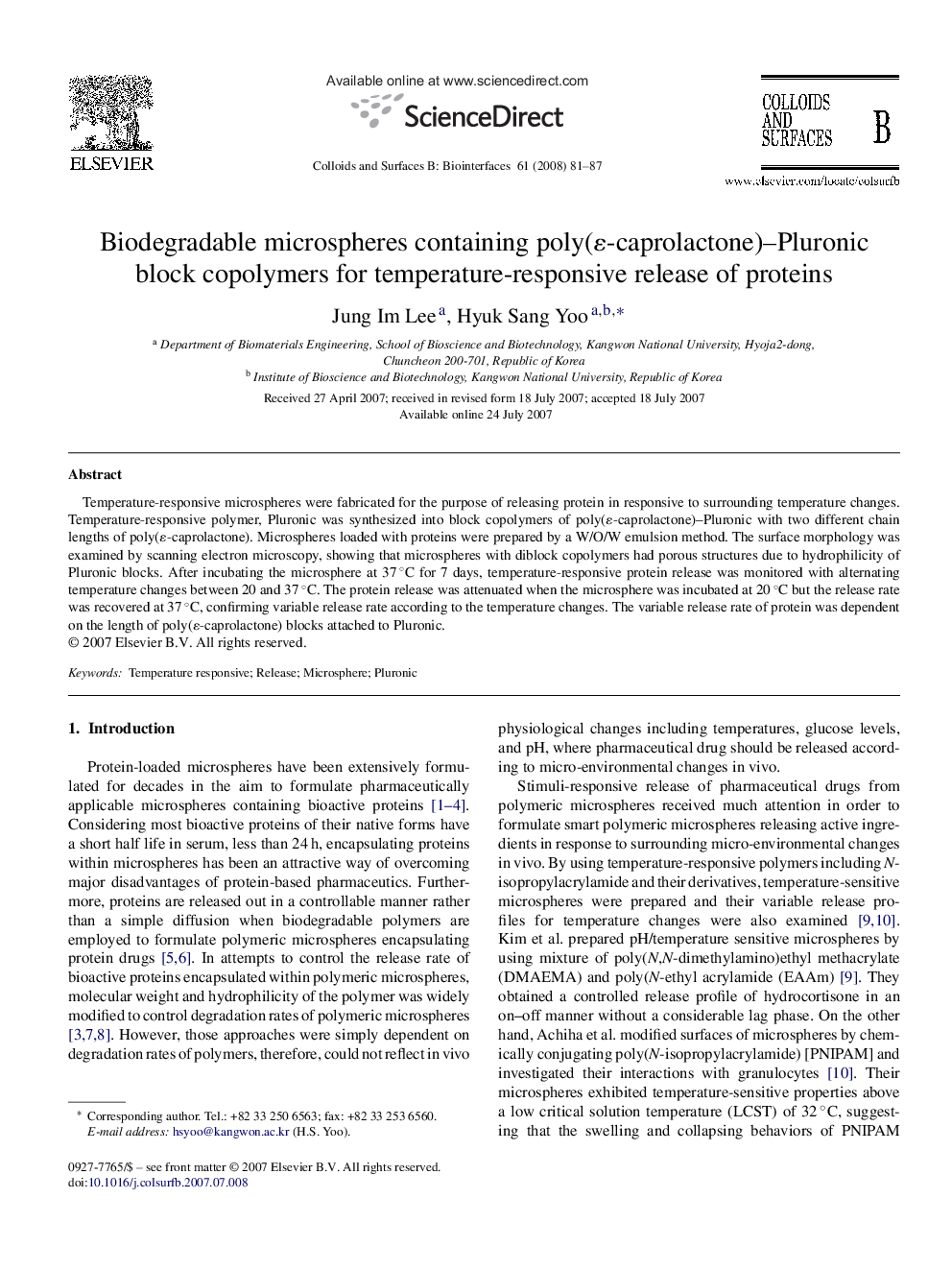| Article ID | Journal | Published Year | Pages | File Type |
|---|---|---|---|---|
| 602400 | Colloids and Surfaces B: Biointerfaces | 2008 | 7 Pages |
Temperature-responsive microspheres were fabricated for the purpose of releasing protein in responsive to surrounding temperature changes. Temperature-responsive polymer, Pluronic was synthesized into block copolymers of poly(ɛ-caprolactone)–Pluronic with two different chain lengths of poly(ɛ-caprolactone). Microspheres loaded with proteins were prepared by a W/O/W emulsion method. The surface morphology was examined by scanning electron microscopy, showing that microspheres with diblock copolymers had porous structures due to hydrophilicity of Pluronic blocks. After incubating the microsphere at 37 °C for 7 days, temperature-responsive protein release was monitored with alternating temperature changes between 20 and 37 °C. The protein release was attenuated when the microsphere was incubated at 20 °C but the release rate was recovered at 37 °C, confirming variable release rate according to the temperature changes. The variable release rate of protein was dependent on the length of poly(ɛ-caprolactone) blocks attached to Pluronic.
